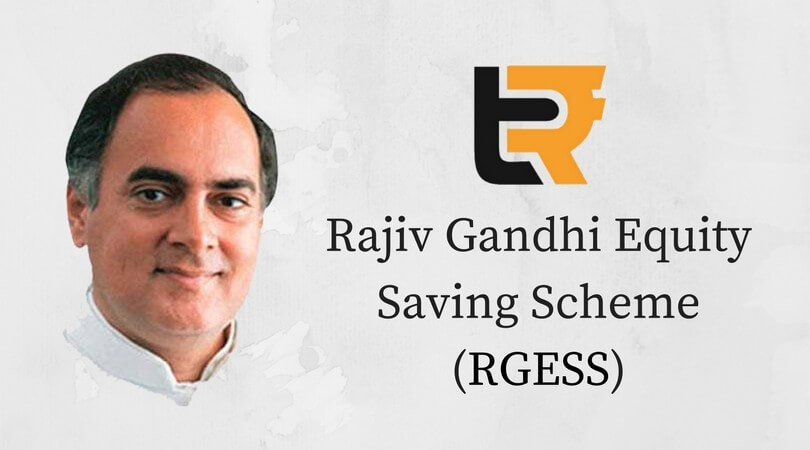Deductions under The Rajiv Gandhi Equity Saving Scheme (RGESS)- Section 80 CCG
Section 80 CCG of the Income Tax Act was introduced in Finance bill 2012, for those persons who save money but do not wish to invest in the capital market. This section had been introduced with a vision to get the flow of money in capital market and encourage investments in listed equities and mutual fund oriented unit’s thereby benefiting in claiming of deductions.
But since its related to capital market where there are high chances of speculation, stringent conditions were attached.
So any investor who has surpluses and wishes to invest can do so by just following basic conditions and gain a competitive investing edge.
Section 80 CCG Applicabilty :
- Only available to Individual Resident assesse.
- Total income should be below Rs. 12 Lakhs.
- Investment to be done in either Listed equity shares, mutual fund oriented units or ETF’s
- Should have opened a demat account first If investments are in Shares then they can be in demat account or in physical paper form.
- Lock in on the shares shall be for the period of 3 years i.e the user cannot sell the shares in which money is invested.
Deduction calculation:
After satisfying the above conditions the assesses shall calculate the total amount invested and deduction allowed is supposed to be as under
50% of amount invested or maximum investment up-to Rs. 50,000 is eligible. For calculation of amount of Brokerage and Securities transaction tax (STT) paid should not be included.
Provided that if the amount invested and claimed is sold further within the lock in period, amount claimed as deduction will be added to taxable income in the year of selling.
Also Read: Government to give a leg up to start-ups
Amendment in Budget 2017
Amended provisions shall be valid from 1.04.2018
No deduction shall be allowed from 1.4.2018 for any Assessment years. So if the shares are acquired and claimed before 31.3.2017 then the individual can claim deduction for the AY 17-18 and AY 18-19 only.


